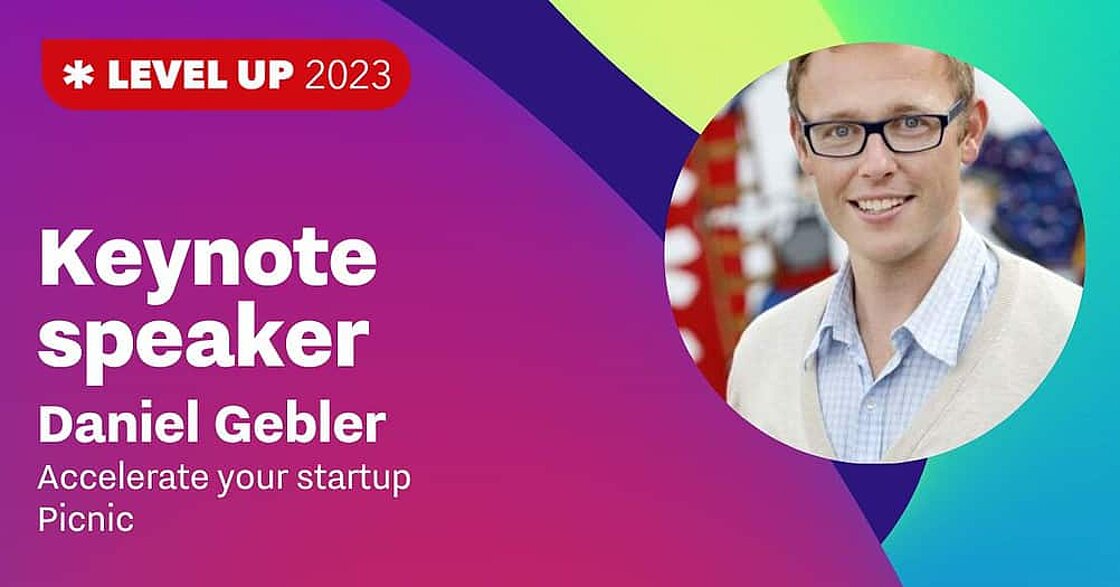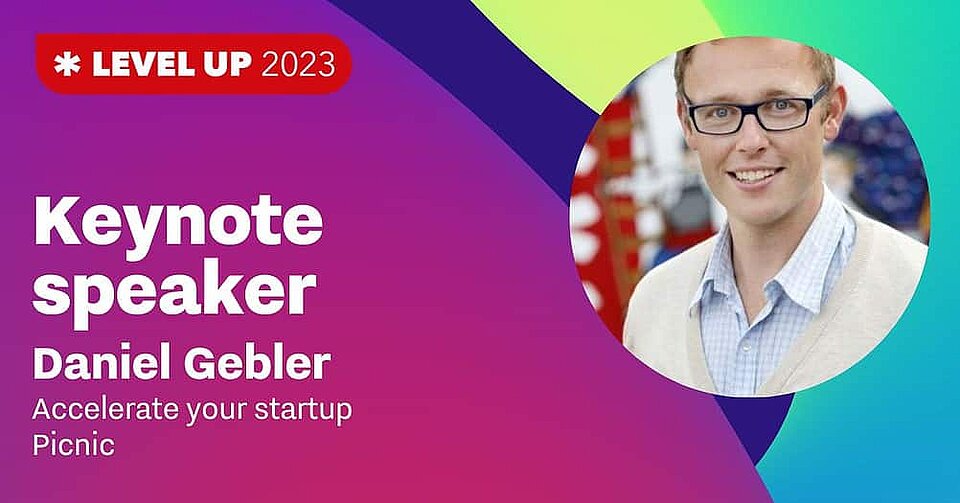Optimize your total product lifecycle, not only the first version of your product
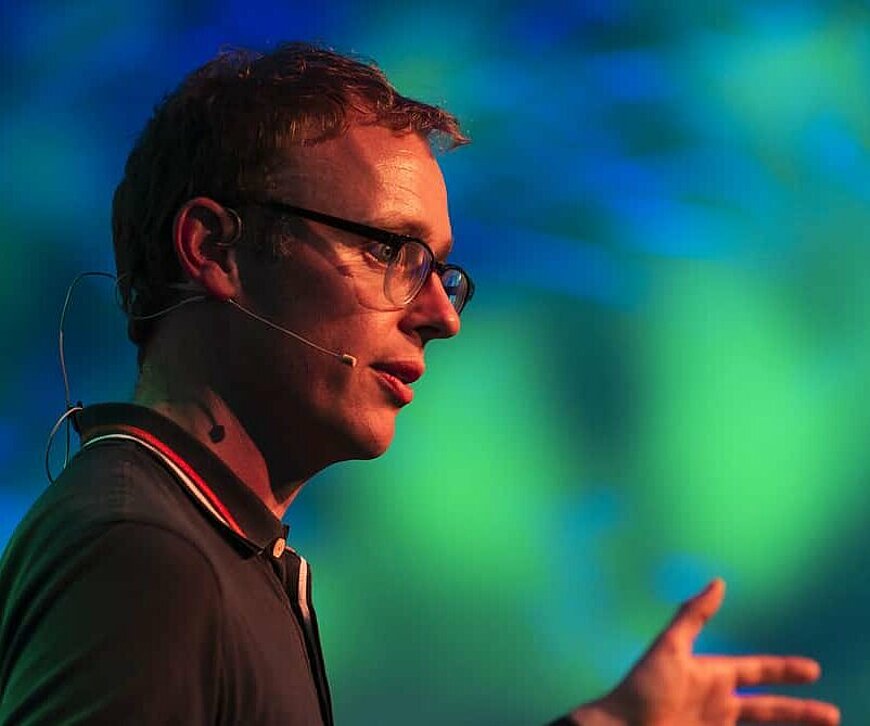
In the eight years he has been working for Picnic, Daniel Gebler has been through all the innovation iterations you can think of. From the outside, Picnic may still look like a grocery delivery company. But on the inside, it is a pure tech company at scale - an ideal place for a computer scientist like Gebler, who knows how technology accelerates business and creates future opportunities as its Chief Technology Officer.
Gebler, born in Germany and Picnic’s CTO since 2015, is one of three keynote speakers at the Level Up event in Eindhoven on September 25. His story will focus on the challenges companies face with both a physical and digital proposition. We spoke with him in advance to get a first impression of his key messages.
Escape Room
Like most successful start-ups, Picnic also uses fancy names for all the meeting rooms in the office. One of them is the Escape Room, where a wall of glass immediately takes away any idea of being locked up. “Obviously, my desire to escape from this conversation will depend on the questions you prepared”, he says with a big smile.
Gebler, who has a PhD in Computer Science, tells about how he and his teams find new ways to innovate. “Innovating in a purely digital business has far fewer limitations than when you have physical operations as well. You need to involve many people with a large variety of expertise when you have physical assets like we have. It took us time, but we can say that we have found a new agile way to innovate in this specific sphere. That’s how we came up with our robotized innovation, for example. Compare it to Tesla, which also combines physical and digital services: you can buy a car with ongoing software upgrades, sometimes even multiple times a week. We have found a similar model for our entire business.” Without sharing all its secret details, Gebler explains this model is all about moving as much business value as possible from a physical to a digital layer. “Because a digital layer enables low effort incremental updates.”
Three things
Three things are crucial in that model, Gebler adds. “The first one is that we optimize for the least effort to build ten iterations. It may sound crazy, but it wouldn’t be wise to fully focus on the first version when we already know that we will need ten. We prefer to concentrate on the total build, which brings you in a completely different way of thinking about what you want to create. The second one is, we are not optimizing for immediate value but for optionality, meaning that we know that a specific innovation will create immediate value but also will unlock ten other possible use cases. In fact, we are even more interested in these additional 10 cases - the optionalities - of which we don't know if and when they will materialize than in optimizing what we immediately know. Everybody is optimizing to make safe bets because everything else is insecure. We are actually going the complete opposite way. The third one is all about data and machine learning, about building systems that are designed to self-optimize. So, there is a data feedback loop for every single system that is created in our daily operation, and the results are used for the planning and the operations of the next day. Thanks to those kinds of systems, even if you are not changing a single line of code, your operations will improve every day.”
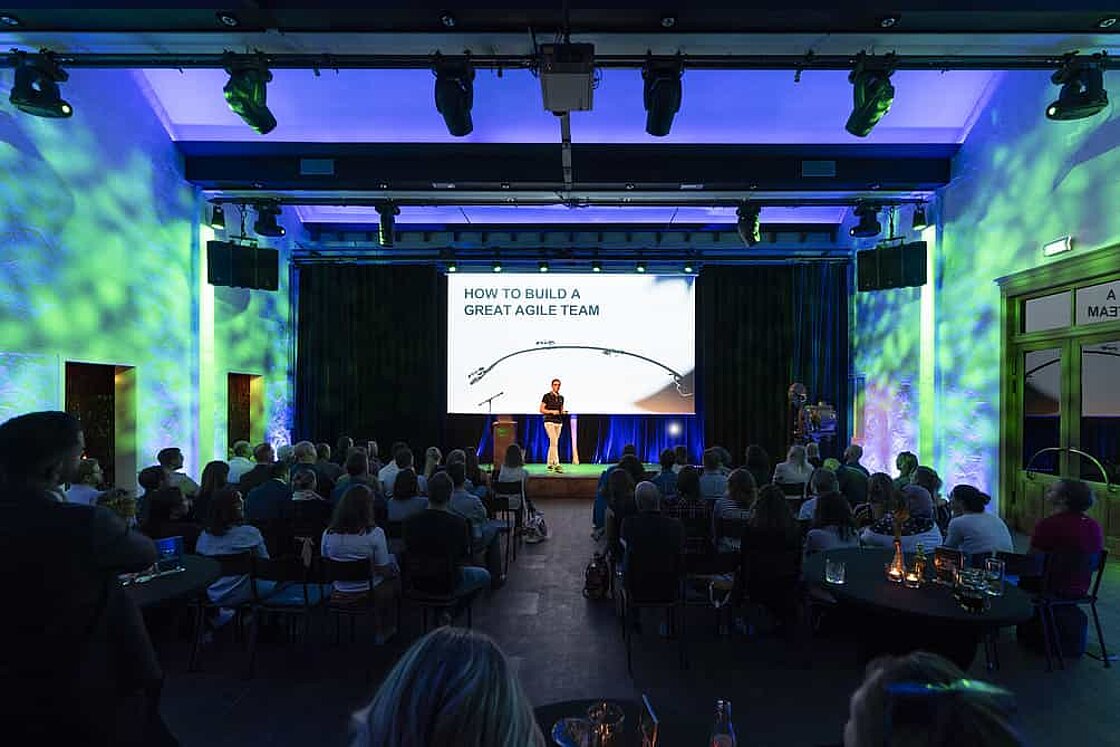
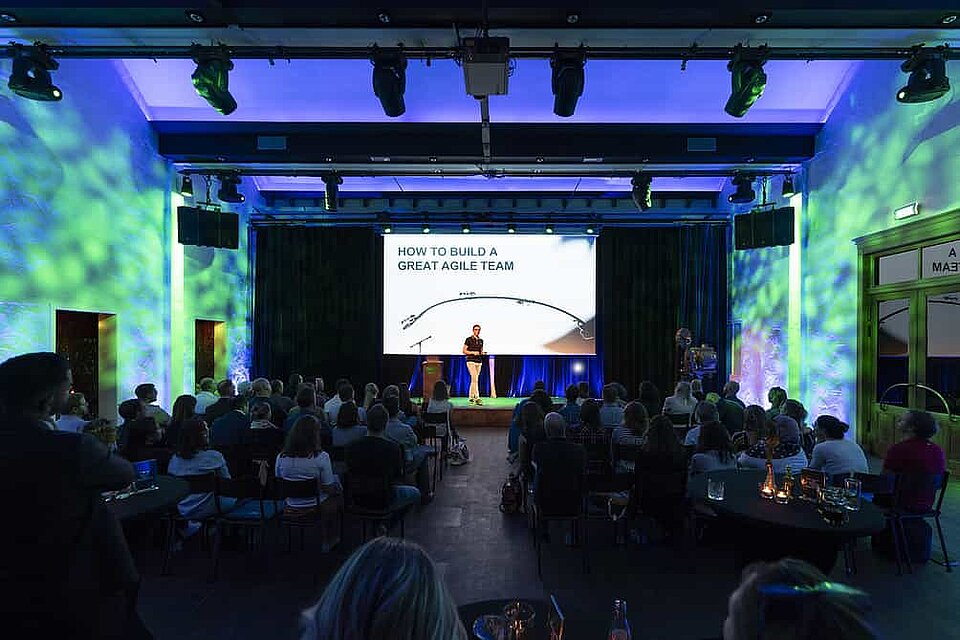
U.S, Europe, China
Start-ups in Europe often look with jealousy at the United States, for example, because funding seems to be available much easier and faster - and in bigger chunks. Gebler has a different perspective. “There are definitely differences from a geographical perspective. However, I think this discussion is ill-thought. When we are referring to what is easier or better in the US or in China, we seem to be forgetting about our own strengths. For instance, you can keep complaining about GDPR, which exists in Europe but doesn't exist in the rest of the world. But you can also ask the question in a completely different way: how can we leverage something like a stronger data privacy and GDPR focus in Europe to create a unique service that nowhere else in the world would be sufficiently incentivized? In fact, exactly in front of our eyes, we are now seeing that this is happening around ChatGPT and OpenAI. A very powerful tool, but everybody is afraid of data leakage, privacy violations, etcetera. So it’s great to see that there are several very interesting European start-ups that are building solutions that are more in line with the European data privacy mindset. I'm pretty confident that they will also succeed.”
What also helps, Gebler adds, is that the digital world is moving from a winner-takes-all situation to one that is much more fragmented. “We’ll see a situation with American solutions, Asian solutions, and European solutions existing next to each other. Moreover, there is so much more development needed. Looking at generative AI, we only arrived at version 0.01. Can you imagine? This is super impressive, we have not even seen 1% of what is possible here. So, also for that reason, there's enough space to develop for European companies as well.”
Unsolved problems
The next meeting is waiting for the CTO, it’s time to escape the room. But before we say goodbye, one question remains: what can visitors expect on September 25? “I hope to inspire everyone by sharing the way of working at Picnic. Not only our biggest successes but also some vulnerabilities and some stuff that has not worked. You know, as a Dutch tech ecosystem, we still have a lot of very interesting unsolved problems. Mind you, when I say ‘problems’ I also mean opportunities. And of course, I also want to learn from the rest of the community to see who has maybe found solutions for some of the challenges that we have been tackling. We are already at the later stages of our start-up journey, but overall, we feel that we have just done maybe 5 or 10% of our journey. So there is another 90% to come. We can use all the wisdom and knowledge of this community.”
Sign up for LEVEL UP 2023